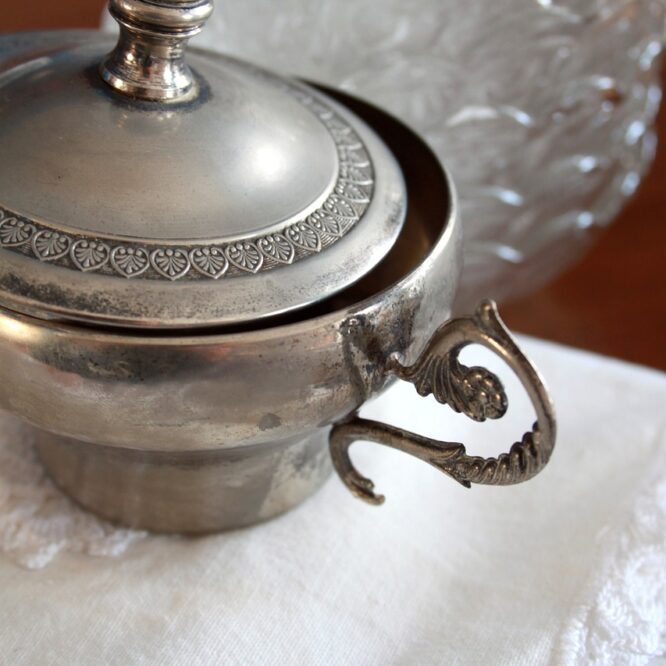Grumbling. Whining. We often hear a lot of it. It isn’t attractive. And it is not only characteristic of two-year olds. When our children were teenagers, we heard a lot of grumbling in our house. A particular day comes to mind. Shortly after our 14-year old son got his learner’s permit to drive, we gave Paul the keys to drive our family home after church. Our daughter, Christie, was quick to react. She turned up her nose and said, “Why does he have to drive?” It was the same tone she might have used if we asked her to swallow vinegar.
The moment caused me to throw out a challenge. I told them when we got home we would put out a ‘grumble pot.’ Anyone in the family caught grumbling would have to put a quarter into the pot. If we managed to keep from grumbling and the pot stayed empty all week, we would go out for pizza.
I can’t say the idea was met with enthusiasm. Eye rolling is what I recall. But when we got home, I put out an empty sugar bowl to serve as our ‘grumble pot.’ The sugar bowl was to remind each of us our speech should be sweet and gracious. Somewhat surprisingly, everyone stayed congenial and pleasant for most of the day. It was late afternoon when the first quarter went into the pot. I no longer remember who was the culprit, but it could have been any one of us. After that, our grumble pot remained out as a useful reminder to curtail our whining.
Grumbling is not a new thing. The book of Exodus in the Bible tells the miraculous story of how God delivered the Israelites out of bondage in Egypt. By God’s enabling, Moses led the people out of Egypt and through the Red Sea.
After 400 years of slavery, the Israelites were finally free. Despite everything God had done for them, they were just days into their journey when they grumbled to Moses because of the hardships they encountered.
Moses made it clear their grumbling was not against him but against God Himself (Exodus 16:8). The rest of the Old Testament shows a recurring cycle. When times were good, God’s people praised Him. When times were hard, they grumbled and complained. Day by day, through all the various tests, the Lord taught them to trust Him. They were slow to learn. We too are slow to learn.
All grumbling is against God, and in Numbers 14:27 He expresses His displeasure with it. Grumbling shows a lack of contentment with what God has provided. The Lord showed Himself faithful as He led the Israelite people through the wilderness for forty years. Their shoes and clothes didn’t wear out. They had manna to eat every day. They had water to drink. God provided for their needs in miraculous ways. They didn’t have all the comfort and convenience they would have preferred, but God cared for them. He provided for their needs.
His faithful provision for our needs, day by day, should cause us to praise and thank Him. Gratitude is the antidote for a grumbling spirit. It is easy to complain about who’s driving. How much better it is to be thankful when we don’t have to walk.
Do everything without complaining and arguing, so that no one can criticize you. Live clean, innocent lives as children of God, shining like bright lights in a world full of crooked and perverse people. Philippians 2:14-15
How have you been able to replace grumbling with gratitude? Please leave a comment below.
Blessings,
Phyllis
Copyright 2024 Phyllis L. Farringer
Image by Leda c. from Pixabay


Thanks, Phyllis, we all need reminders about grumbling. You are guiding us to praise God even more and carry attitudes of thanksgiving to Him. The Grumble Pot idea jolted me and I wondered how much money I might have put in such a pot through the years!
Thanks, Charlotte. It is a reminder to me as well.